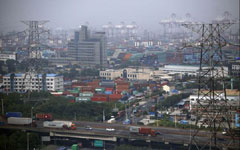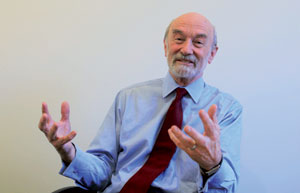Cities wrong to bank on FTZ status
By Ed Zhang (China Daily) Updated: 2014-04-21 06:56During the past 35 years of reform, many great changes have been brought about by big capital and big building projects. Of course, the most crucial changes have been ideas, but people don't usually see them.
|
 |
|
 |
In the last 12 months, they have been advised by many people, including Premier Li Keqiang, to work with the private sector, to be more accommodating to migrant workers in their towns, to support small and medium-sized enterprises and service industries, and to be more lenient toward competition from outside the region. Laws and regulations have been modified to make way for those changes.
But for some officials, doing any of these things is hard work. This is because local governments know that the changes won't bring them as much revenue as quickly as selling land rights to investors for large projects.
Perhaps, only the more intelligent local officials have realized that there is little chance for China to return to its old development strategy based on big capital and big building. Cities will have to learn to rely on the flourishing of a variety of local businesses, large and small, for sustainable revenue.
From now to the beginning of the third quarter, all cities that are waiting for their FTZ campaigns to pay off will lose more opportunities for development. Investors won't show up in a time of low demand. Only cities that are trying to develop a diversified base of prosperity can become more competitive. Let's see which one will.
The author is editor-at-large of China Daily.
- A lesson for China from the knights in armor
- Reed Exhibitions strengthen operation in China
- World premieres at Beijing auto show
- China streamlines tax break procedures for SMEs
- China to maintain high grain output in 2014-2023
- Big stars shine at Auto China
- When big data can lead to big profit
- E-racing may change shape of transport

















